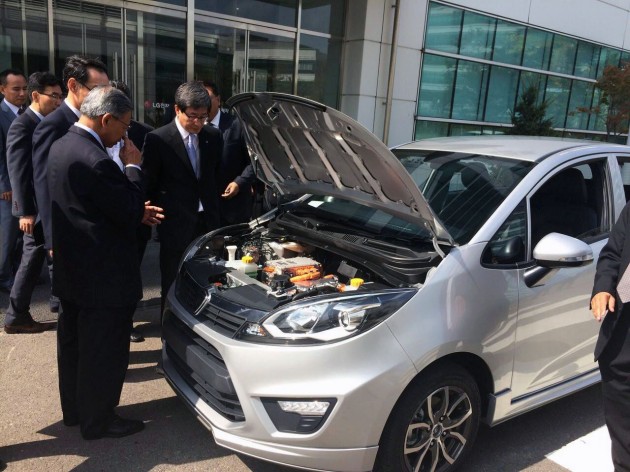Thailand Wants to be an Electric Vehicle Hub
- 09/09/2015
- Transport
- Posted by Tessa Romarez
- Leave your thoughts
Not content with being regarded as the Detroit of the East, Thailand is now aiming to be the electric vehicle hub in the region.
Thailand’s Energy Ministry is planning to give its full support in promoting the country as a production hub for electric vehicles. Narongchai Akrasanee, Thailand’s Energy Minister announced that his office would amend regulations to see that this plan will take off.
According to Pichet Durongkaveroj, Minister Science and Technology of Thailand, demand for electric vehicles has increased dramatically over the last five years. It is expected to continue its rise.
Being an electric vehicle hub would help the country achieve the goal of the Energy Ministry and help the country capitalize on the strong demand for EV batteries and parts.
“EVs are expected to be the new industry trend, reducing carbon dioxide emissions and saving limited oil resources,” said Pichet at the launching ceremony of the Auto Parts Tech Day held at the Thailand Science Park in Pathum Thani province.
“The global automobile industry is focusing on EVs and biofuel vehicles, while Thailand is a hub for one-ton pick-ups and eco-car production,” explained Pichet. “It’s a natural fit for the country to prepare for EV output,” he continued.
The minister said that his office plans to train staff and construct facilities for electric cars and offer investment incentives to attract investors. Also on the table are plans to coordinate with universities in setting up fuel-cell training courses which will be included in the field of mechanical engineering with the objective of creating EV experts.
As an additional support for the program, the ministry has assigned Thailand Science Park as an EV parts R&D center. The ministry also plans to designate an industrial estate as a special-innovation zone (SIZ) to create new products for the EV industry.
For this last project, the ministry is set to discuss incentive packages for eligible investors with the country’s Board of Investment and National Economic and Social Development Board.
There are a number of organizations which are already conducting electric vehicle testing ranging from small cars to large buses. These include the Metropolitan Electricity Authority, the PTT Plc and the Provincial Electricity Authority and a number of universities.
The military-led Thai government is bound to face stiff competition with its neighboring country, Malaysia. In late 2014, Mohamad Madani Sahari, CEO of the Malaysia Automotive Institute announced that they will introduce two EV models by 2017 with a price of less than RM 100k per unit.
A report was also made that MAI will coordinate the EV project, and will set aside RM 10 million for local companies to conduct electric car R&D. Since the battery constitutes approximately 30% of the overall price of an EV, MAI will also work with electric car manufacturers to introduce a battery leasing concept.
Malaysia’s bid to be the EV hub of the region was given a boost recently when Chinese carmaker Beijing Auto International Corporation selected Malaysia to be its regional electric vehicle manufacturing hub. A manufacturing plant in Kedah is expected to start operations by July 2016.

